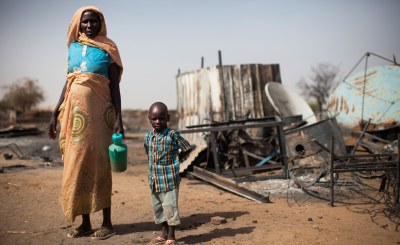 A new report released by Médecins Sans Frontières (Doctors Without Borders, MSF) has shed light on the worsening humanitarian crisis unfolding in Sudan, painting a grim picture of widespread suffering, collapsing health systems, and escalating violence that continues to take a heavy toll on civilians across the country. The report draws from first-hand accounts by MSF medical teams and field workers who have been providing emergency medical care in some of the most affected regions.
A new report released by Médecins Sans Frontières (Doctors Without Borders, MSF) has shed light on the worsening humanitarian crisis unfolding in Sudan, painting a grim picture of widespread suffering, collapsing health systems, and escalating violence that continues to take a heavy toll on civilians across the country. The report draws from first-hand accounts by MSF medical teams and field workers who have been providing emergency medical care in some of the most affected regions.
According to the report, millions of Sudanese civilians are trapped in a deadly conflict that has gripped the country since April 2023, when fighting broke out between the Sudanese Armed Forces (SAF) and the paramilitary Rapid Support Forces (RSF). What began as a political power struggle has morphed into a brutal and protracted war, with both sides accused of indiscriminate attacks, human rights violations, and the deliberate targeting of civilian infrastructure, including hospitals and aid convoys.
MSF warns that the humanitarian situation has reached catastrophic levels, with entire communities cut off from assistance and basic medical services. In many parts of Sudan, including Khartoum, Darfur, and other conflict zones, hospitals have been bombed, looted, or forced to shut down due to insecurity, lack of fuel, and shortage of medical supplies. MSF teams report treating patients in makeshift clinics or overcrowded facilities, often without electricity, clean water, or essential drugs.
The report highlights the sharp increase in cases of malnutrition, especially among children, in conflict-affected areas where food supplies have been disrupted and markets have collapsed. Health workers describe seeing children arriving at clinics severely underweight, many on the brink of death due to starvation and preventable diseases. Outbreaks of cholera, measles, and malaria are spreading rapidly, fueled by poor sanitation, displacement, and a lack of functioning healthcare infrastructure.
MSF staff also recount stories of civilians being caught in crossfire or targeted during military offensives. The report documents instances of mass displacement, with over 10 million people reportedly forced to flee their homes since the conflict began. Many are living in overcrowded camps or makeshift shelters, lacking protection from the elements or access to clean drinking water. Women and girls, in particular, face heightened risks of sexual violence, exploitation, and limited access to reproductive health services.
The organization emphasizes that humanitarian workers themselves are not immune from the violence. Aid convoys have been attacked and looted, and several MSF-supported facilities have been raided or occupied by armed groups. Despite repeated appeals for safe and unhindered humanitarian access, aid organizations continue to face immense challenges in reaching populations in need.
In its report, MSF makes urgent calls to the warring parties to respect international humanitarian law, protect civilians, and allow humanitarian access to all affected areas. The group also urges the international community to increase diplomatic pressure on both factions to cease hostilities and prioritize the protection of civilians. MSF warns that without immediate and sustained action, Sudan could face one of the worst humanitarian disasters in recent memory.
The report arrives at a time when global attention is fragmented by multiple crises, but MSF argues that Sudan must not be forgotten. The organization stresses that the scale of suffering and need is immense, and the consequences of inaction will be measured in countless lost lives. They call for increased funding, logistical support, and international solidarity to help respond to what they describe as a rapidly deteriorating emergency.
Sudanese civilians continue to bear the brunt of the conflict, facing daily struggles to survive amid insecurity, displacement, and deprivation. MSF reiterates its commitment to providing life-saving medical assistance wherever access is possible, but it warns that without meaningful support and protection from the international community, the crisis in Sudan is likely to deepen further in the months to come.

